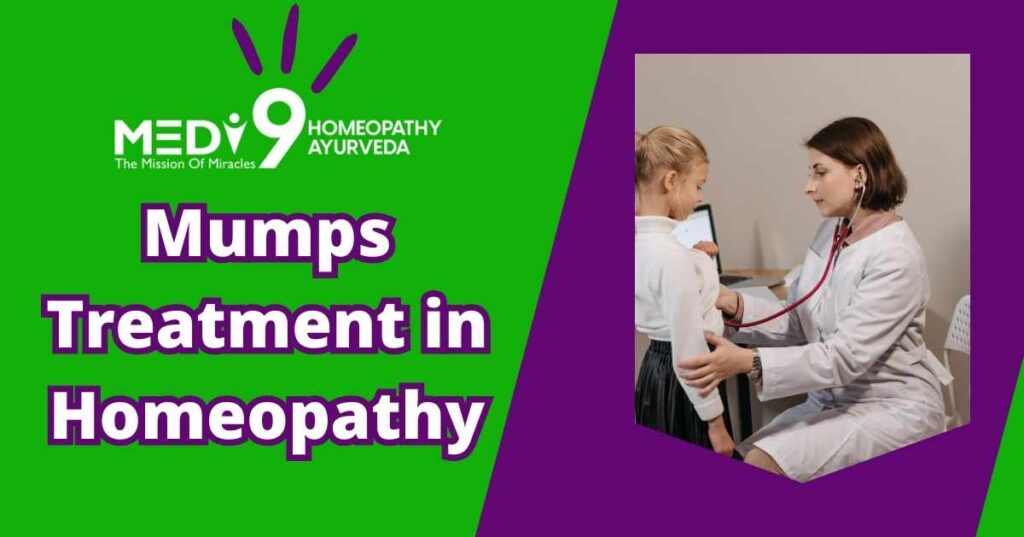Introduction
Mumps is a contagious viral infection that primarily affects the salivary glands, causing swelling, pain, and discomfort. While conventional medicine offers symptomatic relief, many individuals turn to homeopathy for a more natural approach to treatment. This article explores the role of mumps treatment in homeopathy, its commonly used remedies, and how it can support the body’s healing process.
Understanding Mumps
Mumps is caused by the mumps virus, which spreads through respiratory droplets or direct contact with an infected person. The disease often starts with flu-like symptoms, including fever, headache, and fatigue, followed by swelling of the parotid glands. Though mumps is generally self-limiting, complications such as orchitis, meningitis, or hearing loss can occur in severe cases.
Common Symptoms of Mumps:
- Swelling and pain in the parotid glands
- Fever and headache
- Difficulty chewing or swallowing
- Fatigue and body aches
The Mumps Treatment in Homeopathy
Homeopathy is a holistic system of medicine that stimulates the body’s natural healing processes. Based on the principle of “like cures like,” homeopathic remedies are selected to match the specific symptoms of the individual. These remedies aim to reduce inflammation, alleviate pain, and strengthen immunity.
Key Homeopathic Remedies for Mumps
-
Belladonna:
- Indicated for the initial stages of mumps with sudden onset.
- Symptoms include high fever, redness, and throbbing pain in the swollen glands.
- The patient may feel restless and sensitive to light.
-
Mercurius Solubilis:
- Useful for cases with profuse salivation and swelling of the glands.
- Symptoms may include offensive breath, difficulty swallowing, and night sweats.
-
Pulsatilla:
- Best for patients who experience mild, shifting pains and have a gentle, weepy disposition.
- Symptoms improve in fresh air and worsen in a warm, stuffy environment.
-
Phytolacca:
- Recommended for severe pain and hardness in the glands.
- Symptoms include shooting pain extending to the ears, difficulty swallowing, and glandular induration.
-
Rhus Toxicodendron:
- Suitable for cases with stiffness and soreness in the jaw and neck.
- Symptoms are aggravated by cold and alleviated by warmth and movement.
-
Bryonia Alba:
- Indicated for dry, swollen glands with intense pain on movement.
- Patients often feel irritable and prefer to stay still.
Benefits of Mumps Treatment in Homeopathy
- Gentle and Natural: Homeopathy uses natural substances that are diluted to minimize side effects.
- Holistic Healing: Remedies are tailored to the individual, addressing both physical and emotional symptoms.
- Boosts Immunity: Strengthens the body’s defenses to fight the infection.
- Reduces Complications: Timely treatment can help prevent complications associated with mumps.
Dosage and Administration
Mumps treatment in homeopathy is typically prescribed in low potencies (e.g., 6C or 30C) for frequent administration. However, the dosage and frequency depend on the severity of the symptoms and the patient’s overall health. It is essential to consult a qualified homeopath for personalized treatment.
Complementary Measures for Recovery
While homeopathy can significantly aid in mumps management, incorporating supportive measures can enhance recovery:
- Rest: Adequate rest is crucial for recovery and helps conserve energy.
- Hydration: Drink plenty of fluids to stay hydrated and soothe the throat.
- Warm Compress: Apply warm compresses to the swollen glands to alleviate pain and discomfort.
- Soft Diet: Opt for easy-to-chew foods to avoid straining the jaw.
- Hygiene: Maintain good hygiene to prevent the spread of the virus.
Safety Considerations
- Always consult a healthcare professional before starting any treatment.
- Avoid self-medicating, as improper use of remedies may delay recovery.
- Homeopathy is not a substitute for conventional medical care in severe cases.
Conclusion
Homeopathy offers a gentle and holistic approach to managing mumps, focusing on symptom relief and immune support. With remedies tailored to individual needs, it addresses both the physical and emotional aspects of the illness. However, it is vital to seek professional advice for proper diagnosis and treatment. By combining homeopathic care with supportive measures, individuals can achieve a smoother and faster recovery from mumps.
Frequently Asked Questions (FAQs)
Q1: Can homeopathy cure mumps completely? A: Homeopathy can effectively manage the symptoms of mumps and support the body’s healing process. However, mumps being a viral infection, must run its natural course. Remedies help alleviate discomfort and prevent complications.
Q2: Is homeopathy safe for children with mumps? A: Yes, homeopathy is safe for children when prescribed by a qualified homeopath. The remedies are natural and free from harmful chemicals.
Q3: How long does it take for homeopathic treatment to show results? A: The response to homeopathic treatment varies based on the individual’s symptoms and overall health. In most cases, improvement is noticeable within a few days.
Q4: Can homeopathy prevent mumps? A: Homeopathy focuses on treatment rather than prevention. However, constitutional remedies can boost immunity, potentially reducing the risk of infections.
Q5: Are there any side effects of homeopathic remedies? A: Homeopathic remedies are highly diluted and generally safe. Side effects are rare but may include a temporary aggravation of symptoms, which is a sign that the remedy is working.
Q6: Should I stop conventional treatment while using homeopathy? A: Homeopathy can complement conventional treatment. It is advisable to inform your healthcare provider and follow their guidance.

